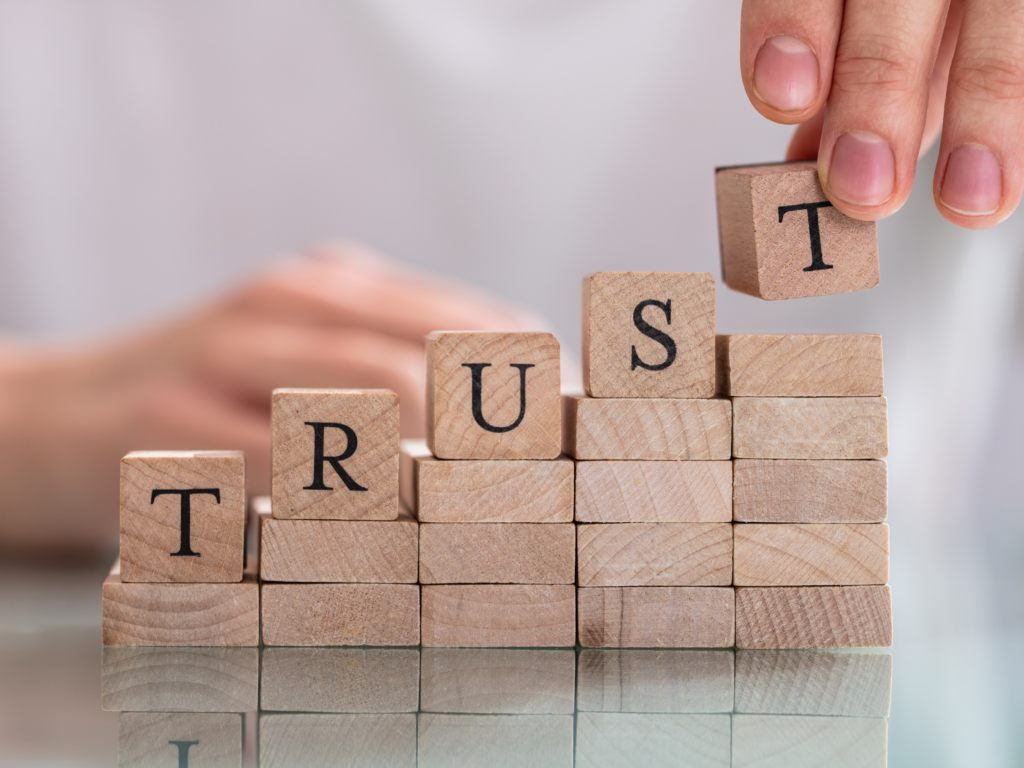Loss if trust is a driver of staff turnover, of staff dissatisfaction, and of burnout. People who can’t trust their employer won’t stick around. People who can’t leave will no longer be effective, productive employees. This creates at the least unhappiness, and at the worst an unsafe workplace or a toxic work environment or both. So, I ask you, is this the structure you want to be building in your organization? Or would you like to learn about alternatives?
All week long, I’ve been posting and showing you our research about what happens when employees lose trust. Information about how different people react to this loss of trust. Some will stay for a bit out of a sense of responsibility, or a need to try to fix the situation for others. However, if this situation goes on long enough, you will drive away all your best talent. No one wants that. I’m here because I have a system that prevents that from happening, backed by technology and research and a community to help you implement it all.
Sometimes a breach of trust is unintentional. After all, we’re all human. It happens. We make our apologies and move forward mending fences. Sometimes, it’s a systems error and our experts are tasked with finding a path out of that mess. We are tasked with listening to them without emotion or blame. It isn’t always easy, yet it is possible.
The difficult times come when trust is broken repeatedly and systematically and the people in power tolerate it. There are many reasons this happens, and the only cure is culture change. #Culturechange starts with #communication. I know, I know. Some of you were wanting me to say to burn the whole place down. There was a time when that would have been my answer, and it would have made me feel better. It would not, however, have solved the problem.
Effective communication is the answer. Effective communication is a process that involves listening for people’s values; listening so intently that you start valuing the other person on a higher level. Now, you might say, “Well, the person who broke trust isn’t going to do that.” Maybe. Let me remind you that hurt people, hurt people. More than likely, that person who broke trust doesn’t feel valued. Perhaps they’ve never truly felt valued. No one has ever listened to them and acknowledged their pain. You can be the one to change that. You won’t know until you try.
Here’s the thing. When you listen for someone’s values, you learn what is important to them and how they want to be valued. You learn how they want to be spoken to, loved on, recognized, cared for, all of that. Odds are, they aren’t getting that. Odds are, they aren’t getting even a small portion of that. You could learn how to make them feel better about themselves. How to make them feel worthy. If they felt worthy, and worthwhile, they might not have a need to tear others down by breaking trust in the workplace.
This seems perfectly logical to me. If you’ve not been exposed to these ideas in the past, then this can be an epiphany. That’s okay. Now that you know, go out and speak to people as if they matter. Build relationships based on values and build trust. Here’s the hard part. There are four basic personality types, and they all view trust differently. Look at my LinkedIn posts from this week, as they spell that out, item-by-item, for each personality type.
You see, your number one asset is people. We believe we can help you keep your people. If that involves culture change, then we have a system for that. Our system is simple, fast, and incredibly implementable. Let me help you build trust.


